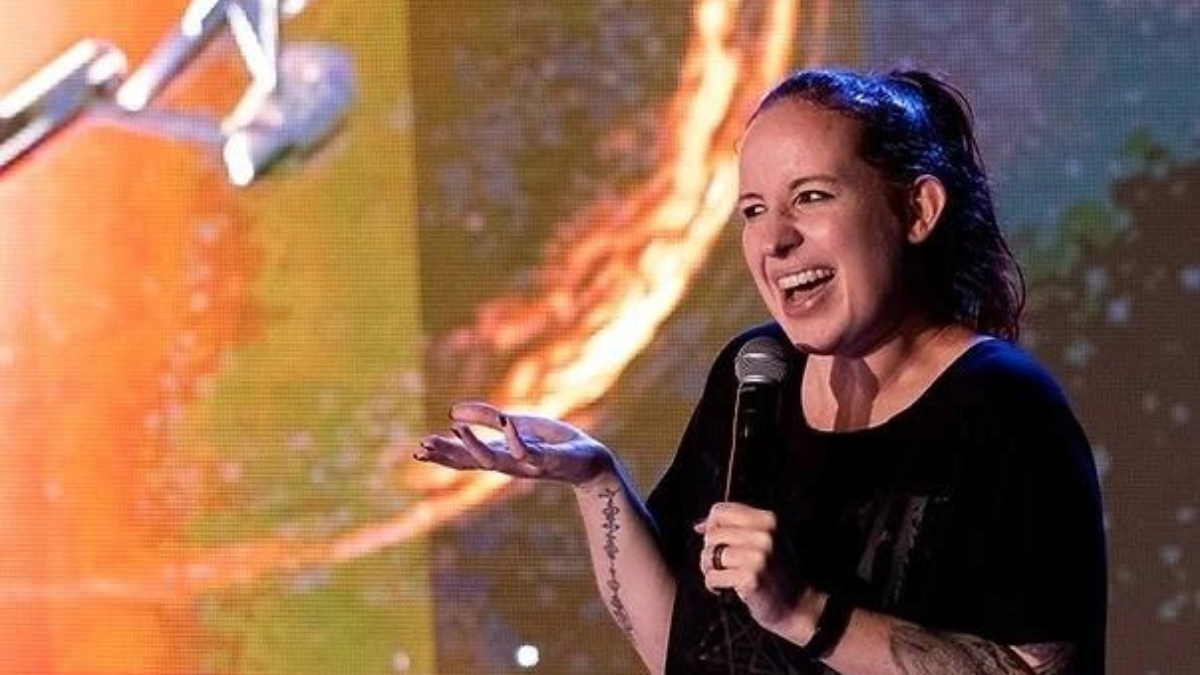SCIENCE: Dr. Erin Macdonald Discusses Her Role As 'Star Trek' Science Consultant

Dr. Erin Macdonald. Image: NPR.
JUNE 5, 2023 - The Star Trek franchise has captivated audiences for decades with its imaginative storytelling and futuristic concepts. While fans appreciate the thrilling adventures and memorable characters, many wonder just how accurate the science behind the series really is.
In a recent interview on NPR's Science Friday program, Dr. Erin Macdonald, a scientific consultant for Star Trek, sheds light on her role in ensuring scientific accuracy in the franchise. With a background in astrophysics and a passion for science fiction, Dr. Macdonald brings a unique perspective to the world of Star Trek.
The Science Consultant's Journey
Dr. Macdonald's journey as a science consultant for Star Trek began during the third season of Star Trek: Discovery. With a Ph.D. in astrophysics, specializing in gravitational waves, she had always used science fiction as a tool for teaching science. After leaving academia, Dr. Macdonald started giving talks at pop culture conventions, which ultimately led her to the entertainment industry. Her expertise and passion for both science and Star Trek made her an ideal candidate for the role.
The Role of a Science Consultant
As a science consultant, Dr. Macdonald works closely with the writers and showrunners of the Star Trek series. She helps answer scientific questions, provides input during brainstorming sessions, and edits scripts to ensure scientific accuracy. One of her key responsibilities is preventing common mistakes, such as confusing star systems with galaxies or misrepresenting astronomical phenomena. By maintaining scientific integrity, she helps create a more immersive and believable Star Trek universe.
Balancing Science and Fiction
One challenge Dr. Macdonald faces is striking the right balance between science and fiction. While she aims to ensure scientific accuracy, she acknowledges the importance of suspending disbelief in order to fully enjoy the storytelling experience. Sometimes, it's best to leave certain fantastical elements unexplained rather than risk losing the audience by over-explaining them. However, as technology advances, some concepts once deemed far-fetched in the series are becoming a reality, such as voice-activated computer systems and wearable technology.
Memorable Science Plotlines
Dr. Macdonald recalls a few memorable science plotlines she has consulted on during her time with Star Trek. In one instance, she contributed to the exploration of dilithium, a fictional element central to the series' technology. By adding canonical explanations rooted in scientific concepts, she enhanced the depth and believability of the story. Additionally, she worked on an episode featuring a coronal mass ejection, introducing viewers to this real-world astronomical phenomenon within the context of Star Trek.
The Possibilities of Future Technologies
When asked about the plausibility of certain Star Trek technologies, such as warp speed and the Borg, Dr. Macdonald explains the theoretical basis behind them. Warp drive, for instance, involves creating a bubble of spacetime around a ship, allowing it to travel faster than the speed of light. While the energy requirements for such technology remain a significant barrier, the underlying principles are grounded in scientific theory. Similarly, the Borg's integration of technology into biological organisms hints at the future possibilities of biotechnology.
Inspiring Future Scientists
Star Trek's impact on inspiring people to pursue careers in science cannot be overstated. Dr. Macdonald recognizes the franchise's responsibility to uphold its legacy of inspiring scientific curiosity. With the introduction of Star Trek: Prodigy, a show aimed at younger audiences, Dr. Macdonald finds herself in a teaching role. Drawing on her background in education, she aims to explain complex scientific concepts in an accessible manner, hoping to ignite a passion for science in young viewers.
Chris Post is a life-long fan of Star Trek who has been working in journalism for nearly 25 years.





